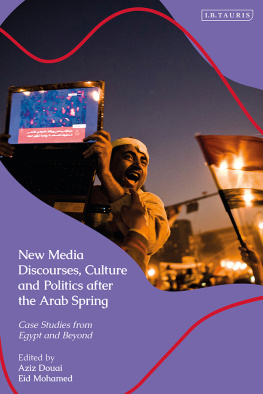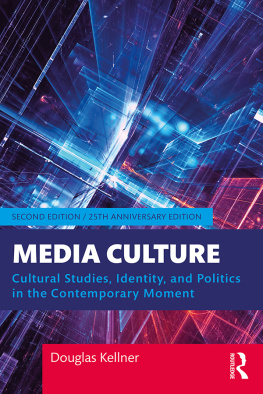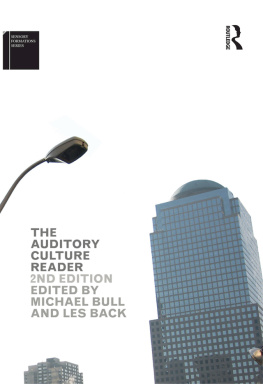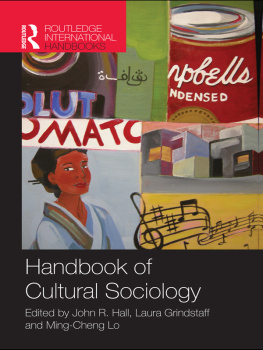Alison Anderson 1997
This book is copyright under the Berne Convention.
No reproduction without permission.
All rights reserved.
First published in 1997 by Routledge
Reprinted 2003 by Routledge
2 Park Square, Milton Park, Abingdon, Oxon, OX14 4RN
Routledge is an imprint of the Taylor & Francis Group
Transferred to Digital Printing 2005
British Library Cataloguing-in-Publication Data
A catalogue record for this book is available from the British Library.
Library of Congress Cataloging-in-Publication Data are available
ISBNs:
1-85728-383-X HB
1-85728-384-8 PB
A number of people have contributed in various ways to this book. I would particularly like to thank Alan Hutchison whose enthusiasm for sociology inspired me to study the subject further, and Justin Vaughan (now at Open University Press) for seeing the project through its initial stages.
Philip Schlesinger, Jacquie Burgess, John Comer and Peter Golding have in different ways played a role in shaping the contents of this book, which originally began life as a PhD thesis. I am grateful to my supervisor, Philip Schlesinger, for his critical comments on earlier drafts of work in progress. I would also like to thank two reviewers of the manuscript who made some valuable suggestions. My colleagues Lyn Bryant, Tim May (now at Durham University), Tony Spybey (now at Staffordshire University) and Malcolm Williams provided much appreciated encouragement and advice. Also I would like to thank the University of Plymouth for providing me with a semesters partial sabbatical to write up some of the material, and to my editor Caroline Wintersgill and staff at UCL Press.
I would particularly like to thank my partner, Peter, for his support throughout the writing process. He gave up a generous amount of his time to read final drafts of the book, while at the same time studying for a demanding part-time course. I would also like to thank my parents, along with Andy, Jenny and Mike, for their constant support and encouragement.
Finally, last but not least, thanks are due to the interviewees, many of whom gave up a considerable amount of their time, and the staff of the British Newspaper Library for their assistance in accessing archive material.
Interviews conducted between 19934 formed a part of the ESRC project, Mass media and global environmental learning (L320253059).
All reasonable steps have been taken to trace the copyright holders but if there are any omissions please contact the publishers.
I would like to thank the following for their kind permission to use copyright material:
Sage Publications for , p. 50, Tour types of news bias, reprinted from D. McQuail 1992, Media performance, London: Sage, p. 193.
Open University Press for , p. 57, A comparison of newspapers, television and radio formats in R. V. Ericson, P. M. Baranek, J. B. Chan 1991, Representing order, Buckingham: Open University Press, p.22.
Blackwell Publishers for , p. 184, Estimates of possible sea-level rises and 6.2, p. 185, Distribution of New Zealand consumption of ozone depleting substances in A. Bell 1991, The language of news media, Oxford: Blackwell, p. 244 & p. 241.
Robert Worcester for , p. 93, Actions taken to protect the environment, R. Worcester 1994, Societal values, behaviour and attitudes in relation to the human dimensions of global environmental change, August, XVith IPSA World Conference, Berlin.
Solo Syndication for , Mail on Sunday, 28 August 1988.
Greenpeace for , p. 90, Nuclear free seas, copyright Greenpeace/Morgan.
The Detroit News for , p. 194, cartoon by Larry Wright, Detroit News, 8 April, 1979.
Addison-Wesley Longman for , p. 193, Circuit of communication from D. Punter (ed.) 1986, Introduction to contemporary cultural studies, Essex: Longman, p.284.
Over recent decades the environment has become a key area of international debate. At various points in time different environmental issues have come to the fore of public and political attention. In this book I argue that to some extent this reflects the activities of issue sponsors such as politicians, scientists and environmental pressure groups, as well as news media agendas. We currently face a number of pressing problems concerning the global environment, yet this is an area that involves making complex choices about a number of interconnecting issues that are often characterized by a great deal of scientific uncertainty. In my view the study of risk and the environment deserves to occupy a central place within media and cultural studies since the news media play a crucial role in framing this contested terrain. As I will explain, the speeding up of time and shrinking of space through modern communication systems has contributed to major transformations in the way we view nature. This book is based upon a critical examination of the news-making literature, and my own research conducted with claims-makers and reporters covering environmental affairs from the late 1980s to the mid 1990s.
There are a number of global environmental issues that I think warrant serious attention from media sociologists as well as others in related disciplines. Of all the current environmental issues we face, perhaps global warming gives the greatest cause for concern since predicted rises in sea levels, as a result of the warming of the earths atmosphere, could potentially have devastating effects for low-lying areas of the world. The so-called greenhouse effect is thought to be mainly caused by emissions of carbon dioxide (CO2) from the burning of fossil fuels such as coal and oil, and from vehicles. In addition to this the burning of the worlds forests heightens the problem since this releases large quantities of CO2 into the atmosphere and, at the same time, less carbon dioxide is removed if there is less photosynthesis occurring. Greenhouse gases also include: methane; nitrous oxide; ozone; CFCs (chlorofluorocarbon gases released into the air from, among other things, aerosol cans) and water vapour. The build up of carbon dioxide gases is thought to act like the glass of a greenhouse, allowing the suns rays to penetrate but not letting them escape, thus resulting in the warming of the earths atmosphere.
The depletion of the ozone layer has also been the subject of considerable debate since Joe Farmans discovery of a hole in the early 1980s. In particular, concerns have been raised about the believed link between the rise in skin cancers, cataracts of the eye, a weakening of immune systems, and the greater amounts of ultraviolet radiation from the sun reaching the earth. The production of CFCs is thought to be the major cause of the thinning of the ozone layer and a number of steps have already been taken to phase out their use.
Air pollution is another major area of concern. Exhaust emissions, together with a cocktail of industrial pollutants released into the air, are believed to pose acute problems in countries such as Poland, the Czech Republic, former East Germany and Mexico. The inhabitants of Mexico City, for example, are said to be exposed to the equivalent of smoking 40 cigarettes a day. In addition to smogs, acid rain is believed to have serious consequences. Acid rain derives from the burning of fossil fuels from power stations, factories and motor vehicles. It can have far-reaching effects upon other countries damaging buildings and forests, and affecting water quality in lakes and rivers.






